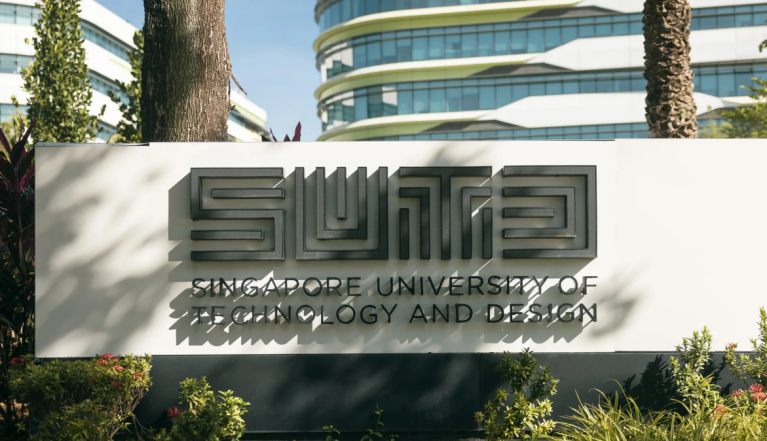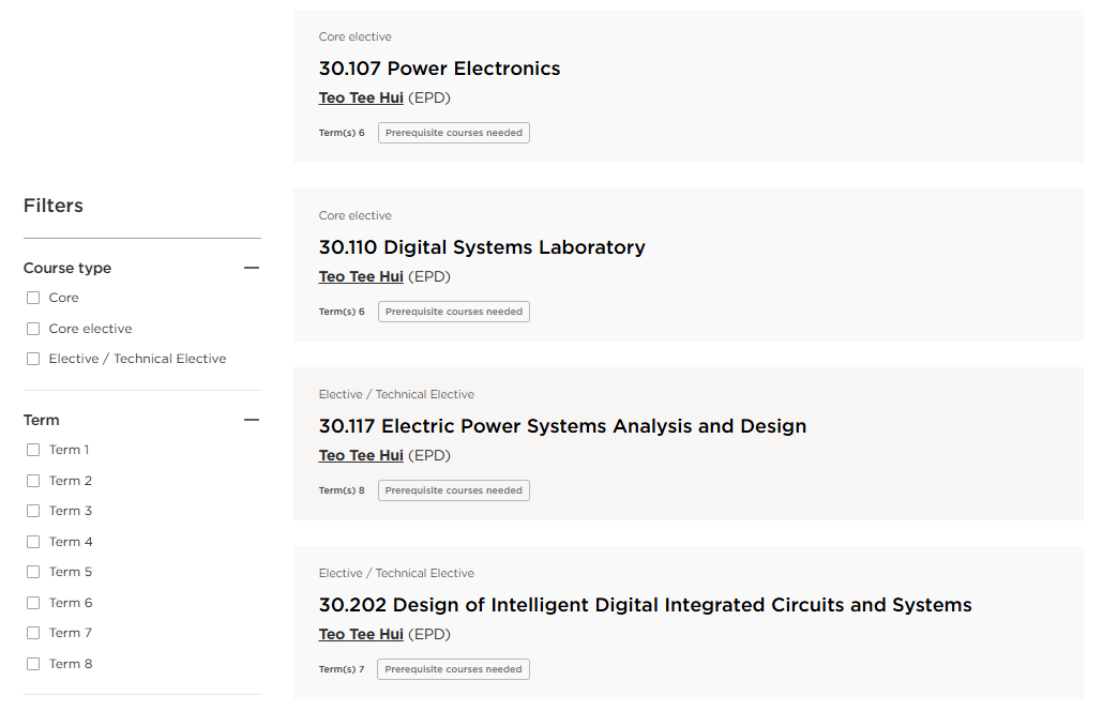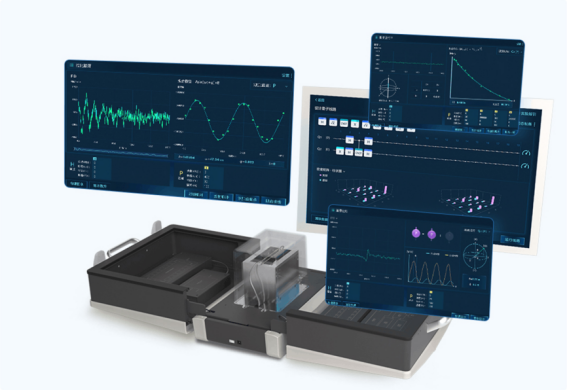Southeast Asia+1: SpinQ Gemini Lab Empowers Singapore SUTD to Cultivate “Industry-Ready”Quantum Talent
2025.08.19 · Press Release SpinQ Gemini Lab
Since its establishment in 2009, the Singapore University of Technology and Design (SUTD) has embraced a core philosophy of “design thinking driving technological education.” The university breaks down traditional academic boundaries, fostering an educational model that integrates interdisciplinary learning with real-world, project-based experiences. It offers four major academic pillars: Architecture and Sustainable Design (ASD), Engineering Product Development (EPD), Engineering Systems and Design (ESD), and Information Systems Technology and Design (ISTD). SUTD focuses on emerging fields such as smart cities, quantum technology, and AI hardware, aligning its programs with the needs of future industries.
In collaboration with the Massachusetts Institute of Technology (MIT), SUTD has jointly developed its curriculum and pioneered the “Gap Semester” industry immersion program. This initiative cultivates well-rounded graduates with strengths in engineering, human-centered design, and innovation and entrepreneurship. By closely linking cutting-edge technological education with industry practice, SUTD has become a global model for cultivating talent with both deep technical expertise and forward-looking industrial insight.

Quantum Education Initiatives at the Engineering Product Design (EPD) Pillar
In alignment with Singapore’s 2025 National Quantum Strategy, the Singapore University of Technology and Design (SUTD) aims to cultivate specialists who can both design quantum hardware and develop and implement quantum circuits, laying the groundwork for the practical adoption of quantum computing. As Dr. Teo Tee Hui, IEEE Senior Member and faculty member at the EPD pillar, noted, the initiative is “about preparing talent ahead of time for the possible future applications of quantum computing.”
The program is anchored within the EPD pillar, leveraging Singapore’s strategic position as a global semiconductor hub to build a comprehensive training framework that integrates design, device modeling, and system verification. The faculty team brings both research expertise and industry experience—Dr. Teo, for instance, previously worked at A*STAR’s Institute of Microelectronics and at STMicroelectronics.
In addition to core subjects such as analog and mixed-signal IC design and semiconductor device physics, the curriculum actively incorporates quantum computing laboratory courses, enabling students to gain hands-on experience with the full workflow of quantum computing—from system design to testing.
Hands-on Hardware Training Is Key to Producing “Industry-Ready” Talent
According to Dr. Teo Tee Hui, while SUTD has built a solid foundation in quantum circuit design, its current instruction remains predominantly focused on theory and simulation. Hardware validation and testing continue to pose significant challenges, with three key issues identified:
- Lack of Hardware Validation: Students can execute quantum gate operations via cloud platforms but have no access to physical hardware for direct verification and testing.
- High Cost and Technical Barriers: Most mainstream quantum computing architectures require ultra-low-temperature environments, with deployment costs often exceeding one million Singapore dollars. These systems are complex to maintain and impractical for undergraduate teaching.
- Mismatch with Industry Needs: Quantum hardware companies seek talent with combined expertise in circuit design and hardware engineering, yet conventional education largely covers only theoretical aspects. Students may design quantum circuits and simulate algorithms but lack real-world hardware testing experience, leaving a gap between academic training and the demand for industry-ready professionals.
“Our students can design quantum circuits and perform algorithm simulations, but without hands-on testing on actual hardware, there remains a gap with the ‘ready-to-deploy’ talent that companies are looking for,” Dr. Teo emphasized. Equipping students with practical, classroom-ready hardware is therefore essential to overcoming the current bottleneck in quantum education.
SpinQ Gemini Lab: A “High-Impact, Low-Cost” Upgrade for Quantum Education
In 2024, the Singapore University of Technology and Design (SUTD) partnered with SpinQ to introduce the SpinQ Gemini Lab quantum experimental platform, addressing key challenges in quantum education through a practical, cost-effective approach:
- Comprehensive Experimental Coverage: The platform offers a full-stack suite of quantum computing experiments, along with modules on quantum control, quantum simulation, quantum precision measurement, and quantum communication. This enables students to gain end-to-end training—from theoretical concepts to hands-on hardware practice.
- Room-Temperature Operation and Cost Efficiency: Operating without the need for ultra-low temperatures, the system is affordable to deploy and maintain. Its modular design supports small-class instruction for 20–30 students, significantly lowering the barriers to implementing laboratory-based quantum education.
- Visualized Hardware Architecture: An open-chassis design exposes key components such as magnets and RF modules, giving students a clear view of the physical structure underlying qubit control.
SUTD has integrated the Gemini Lab into its existing curriculum, creating a complete “theory + simulation + hardware practice” teaching model. The platform is currently used primarily by EPD students, with new experimental modules covering qubit properties, quantum decoherence, quantum control, quantum logic gates, and quantum circuits.

Dr. Teo Tee Hui noted that the SpinQ Gemini Lab enables a complete experimental teaching workflow—from coding (qubit simulation) to quantum circuit measurement. The system operates at room temperature, features a compact design, and is easy to operate. Building on the positive results achieved with the first unit, SUTD plans to acquire a second Gemini Lab to expand its Electronic Design Lab.
Meeting Market Needs with Precision: SpinQ Gemini Lab Becomes a Top Choice for University Teaching Labs
As a highly interdisciplinary frontier field, quantum computing integrates knowledge from physics, computer science, and electronic engineering. Designed with a clear understanding of market needs, the SpinQ Gemini Lab is suited not only for physics-related programs but also for courses focused on quantum circuit integration and engineering-oriented instruction.

In acquiring this platform, SUTD is targeting students with a background in integrated circuit design, aiming to strengthen their understanding of quantum computing and lay a solid foundation for advancing their skills in quantum circuit design, simulation, and testing. The SpinQ Gemini Lab emerged as SUTD’s top choice, offering distinct advantages:
- Full Lifecycle Integration: Its modular curriculum can be seamlessly embedded into existing academic programs for targeted enhancement, while also supporting ongoing program upgrades with complete training blueprints, core course outlines, and laboratory planning.
- Global Training Perspective: The curriculum is aligned with leading international standards for quantum computing education and leverages SpinQ’s global industry experience to deliver practical training projects in quantum algorithms and applied scenarios.
- One-Stop Solution: Through an integrated “textbook + equipment + faculty training” service model, SpinQ enables universities to rapidly establish academic frameworks and implement instruction, making it possible for faculty to “teach out of the box” and students to “learn out of the box,” ensuring the equipment is fully utilized in practice.
The SUTD Model: Cutting-Edge Equipment Driving Engineering Education Upgrades
In an era of rapid technological advancement, higher education must keep pace—not only aligning with the latest theoretical developments but also strengthening hands-on training. The collaboration between the Singapore University of Technology and Design (SUTD) and SpinQ stands as a prime example of academia embracing technological change. The introduction of the SpinQ Gemini Lab has not only bridged the gap in SUTD’s quantum hardware instruction but also advanced its academic programs with a high-impact, cost-effective upgrade.
When traditional engineering meets the quantum revolution, the SpinQ Gemini Lab offers universities a “low-cost, high-impact” pathway for transformation. As Dr. Teo Tee Hui recalls from his early advocacy of AI education—once met with skepticism—SUTD’s AI graduates have since become key contributors in the industry. The development of quantum technologies demands the same foresight, and SpinQ’s equipment provides a tangible foundation for turning the vision of quantum computing education into reality.
Featured Content






